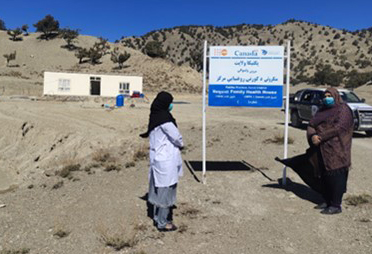Family Health House Evaluation
Project Details

Improvements in Afghanistan’s health service delivery resulted in improved health outcomes across a number of areas. Life expectancy at birth has increased and there have been significant decreases in neonatal, infant, and child mortality rates.
While improved access to reproductive health care services the has significantly decreased the Maternal Mortality Rate (MMR), Afghanistan’s MMR remains amongst the highest in the world.
The Family Health House Model, as a community led-intervention, is designed to provide effective essential Reproductive maternal, newborn, child, and adolescent health (RMNCAH) services in hard-to-reach areas of Afghanistan. These women’s health facilities, led by trained local female Community Midwives (CMWs) provide reproductive health information and services to women and girls as well as provide essential health services to children under five.
The Nossal Institute for Global Health in collaboration with Health Protection and Research Organization (HPRO) will provide an independent assessment of the relevance, effectiveness, efficiency, sustainability, coverage and connectedness of Project support and the extent to which the project addressed gender equality and environmental sustainability.
This project will assess the implementation of the project 2018-2023 and the progress made to date and will provide a set of clear and forward-looking, strategic, and actionable recommendations for the new programming design.
Researchers
Collaborators
Dr. Mansoor Farooq, Health Protection and Research Organization
Funding
This project is funded by UNFPA
Research Group
Health Systems Governance and Financing
School Research Themes
Data science, health metrics and disease modeling, Disparities, disadvantage and effective health care
Key Contact
For further information about this research, please contact the research group leader.
Department / Centre
Nossal Institute for Global Health
MDHS Research library
Explore by researcher, school, project or topic.